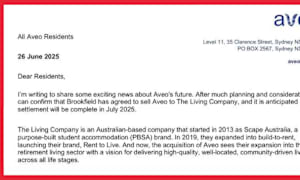David Waldie points out the obvious – that a medical alarm failure involves residents at risk. He also points out that increasingly, it is directors and brand reputation that are at risk.
In 2021, it is expected that life-saving systems like medical alarms have continual self-diagnosis and reporting to maintain resident safety and auditable compliance. The fact is not all medical alarm systems offer that. If in 2021, residents and staff have to conduct regular tests to check that systems are operational, you are probably below the bar.
What is “safe” today for personal alarm systems?
eevi co-founder and CEO, David Waldie, says “safety and compliance” together are the issues today.
“First, you need to know the health of your medical alarm system – the confidence it is operating to protect your residents and staff. Second, you need visibility through dashboards and reporting systems, protecting the operator.”
Many systems today are not match fit. He gives the example that for decades, batteries in personal alarm pendants have been dying and not discovered until monthly tests are run, resident by resident.
“In 2021, you expect, and your residents and their families expect, that all systems will be self checking constantly. When 60 seconds can be the matter of life and death, three weeks with a flat battery is out
of the question.”“The technology is freely available to negate these risks.”
Care monitoring technology as one foundation for care marketing
The predominance of basic personal emergency response systems in retirement communities is historically based on the balance of cost and demand. The Village Operator is responsible for the capital cost, the demand is low because residents historically have been ‘independent’ and the call response service has been a true emergency only support.
This changes dramatically looking forward.
David says: “The provision of care support is rapidly emerging as a cornerstone in the village product offering. The expectation of customers and the community increases each year. As new in-home services and tools become market-tested and proven, such as wearables and movement detectors, they will be expected by your customers.”
“At the core of this is your investment in the medical alarm system. These new tools will hang off it. But the weak points of the medical alarm system will be the weak points of the new services.”
“It is critical that the same rigour of safety and compliance is applied to each new technology and service that is plugged in to the base system.”
Check the checker and audit trail
David points out the obvious – what happens when the checking system fails? Who checks it?
“Best practice in mission-critical technology is to have an independent, detached checking system that checks the continual diagnosis process. At eevi, we have built eevi Watchdog. It goes so far as to check that every emergency event receives a call back; it is checking not only the systems, but also the human elements.”
As village operators venture into the marketing and delivery of support and care, they also venture into new regulatory regimes and corporate and director responsibility.
“Life saving systems need appropriate audit trails as the minimum requirement to de-risk the business,” says David.
Good business
“It is also good business. You don’t want staff and residents checking medical alarm systems to see if they work. This is inefficient and undermines resident trust. Good news travels fast, bad news travels faster,” points out David.
“Every time an alarm is successfully raised and well-handled creates a positive ripple through a community – it verifies that residents made the right decision buying in. One bad experience creates a tidal wave of concern, even fear, that the village is not safe.”
“Morally and financially, no owner or director wants such an event.”
System safety and compliance in 2021
David asks a few simple questions: “Are you satisfied you have done all things reasonably practicable to ensure a safe system and compliance? For example, is your system self-checking, end to end, multiple times a day? Is your system reporting faults in real time to your maintenance team, for instance via mobile apps? Can he or she quickly remedy faults? Do you have an auditable trail of your system's health and speed of response in an emergency? These are just common sense tests.”
With some of the largest retirement living operators swapping over to eevi, he knows owners and directors are committed to the heightened standards expected in 2021.










